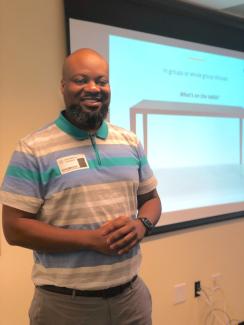
What are the Retirement Challenges for Texas Teachers?
Despite the importance of teachers in Texas educating, mentoring, and nurturing our children, we are not preparing them enough for retirement. A 2020 poll showed that 77% of Texans have trust and confidence in our state’s teachers, which is 16 percentage points higher than the national average.1 Unfortunately, this poll found that Texas teachers are undervalued.
With such a challenging and demanding profession that does not pay well and provides increasingly poorer employee benefits, what can teachers do to reach their retirement goals? In this blog post, I discuss three of the most critical challenges for teachers who want to retire in Texas. I also provide some advice on how to meet these challenges.
No Social Security. This is a significant issue for Texas public school teachers, where the vast majority of school districts do not pay into Social Security, which is the primary program that funds the retirement of most Americans. So if your only full-time job was a teacher and you did not pay into Social Security, you will not get your own benefit.
This major challenge can be addressed by deferring a percent of your salary into a defined contribution plan, such as a 403(b) if your district offers one. Sadly, not all teachers know about 403(b) plans, and many do not adequately fund them. Or don’t get any advice on how much they should contribute each paycheck.
In addition, some providers have costly products, as seen by variable annuities that lock the participant into contracted investments that provide poor performance and meager returns. Teachers also get very little advice on what an appropriate investment to choose from. This is not just a Texas problem, as there have been many stories about how insurance companies take advantage of teachers.
Inadequate TRS pension. There are, of course, benefits of having a defined benefit pension plan. Essentially, with TRS, you pay into the system, and you get a benefit based on your final salary and years of service to determine your monthly pension benefit.
TRS is generally a better-funded pension compared to other state plans. There is talk about underfunding the pension, but I do not see this as a significant issue. Recent changes have secured a better future for TRS. However, these changes significantly disadvantage teachers new to the system as the burden will mostly fall on them to fund the pension adequately.
TRS does have several issues; one is that it is not indexed for inflation like Social Security. This is a significant problem since you lose purchasing power over time. The cost of things increases, but your monthly pension remains the same. This lack of cost of living adjustment compounds over time, and your purchasing power worsens, especially in this period of higher inflation.
What to do about this is to make sure you save money beyond your pension contribution towards retirement. As I mentioned, a 403(b) is a good option. But you could also open a Roth account and contribute towards this. The message is clear: TRS will fund some of your retirement, but it is good to be prepared and save money beyond this pension plan.
TRS favors long service and higher salaries. As with most pensions, TRS favors those who work more years and have higher wages. For teachers who switch from another profession to being a teacher, the TRS system provides more significant benefits for longer-tenured workers because of the current benefit formula. This is especially difficult for someone who wants to change their career. It is, as we know, difficult to attract new teachers, and this makes it decidedly worse.
If you, as a teacher, do not want to become an administrator, your salary is essentially capped at a certain point. There are very few or consistent pay raises for Texas teachers. This has a direct impact on the monthly benefit that you get in retirement. Teachers in Texas tend to retire early and start taking pension benefits because of the lack of an increase in the monthly pension beyond some point in their careers.
How to address these challenges. There are simple ways you can do to position yourself for retirement better. One can save beyond TRS into a 403(b), traditional IRA, or Roth account. You can save up to $22,500 into a 403(b) and $6,500 if under 50 in 2023. In addition, saving for retirement can reduce your taxes in the future with the Roth or deferring taxes until later when you might be in a lower tax bracket in retirement.
Texas school districts need to recognize the importance of saving beyond TRS and provide their employees with many good retirement savings options. If your school district does not offer a 403(b) plan, ask HR to provide a low-cost one. Be careful of high-priced insurance companies that offer annuity products. Talk to a financial planner and prepare for your retirement today! Contact me on the contact page below if I can help you with your retirement success.
1. https://www.raiseyourhandtexas.org/wp-content/uploads/2020/02/RYHT_Foundation_Poll_2020.pdf
*This content is developed from sources believed to be providing accurate information. The information provided is not written or intended as tax or legal advice and may not be relied on to avoid any Federal tax penalties. Individuals are encouraged to seek advice from their own tax or legal counsel. Individuals involved in the estate planning process should work with an estate planning team, including their own personal legal or tax counsel. Neither the information presented nor any opinion expressed constitutes a representation of a specific investment or the purchase or sale of any securities. Asset allocation and diversification do not ensure a profit or protect against loss in declining markets.




